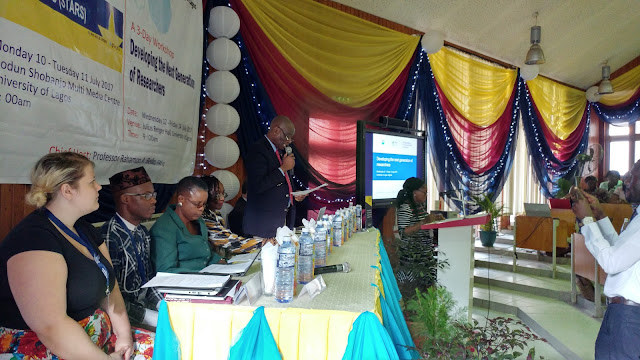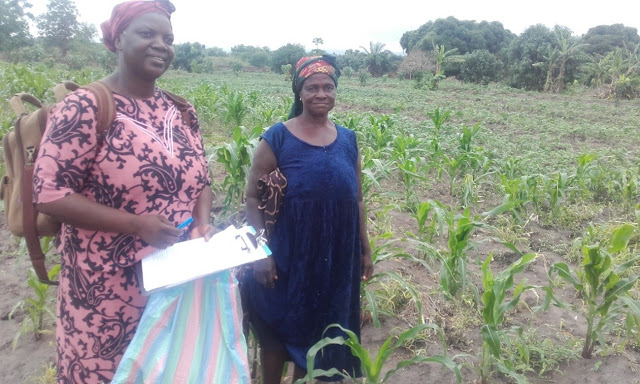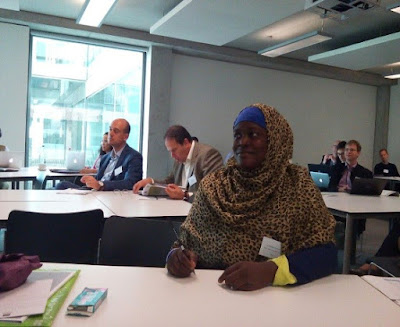By Catherine Mungai and Caroline Bosire, from the International Livestock Research Institute, Kenya
Cohort 1 and Cohort 3 (resp.) CIRCLE Visiting Fellows
Cohort 1 and Cohort 3 (resp.) CIRCLE Visiting Fellows
Kenya
has made great headway in developing policies and strategies to respond to
climate change across different sectors; most notably in agriculture. The
agricultural sector is the driving force of Kenya’s economy and is also one of
the sectors most sensitive to the impacts of climate change. The agricultural
sector has been identified as a major source of greenhouse gas emissions, therefore
necessitating the identification of measures through which the sector can
mitigate climate change. Introduced by the Food and Agriculture Organization of
the United Nations, climate-smart agriculture (CSA) is one such approach which aims
to sustainably improve agricultural productivity, increase farmers’ resilience,
reduce and/or remove greenhouse gas emissions, and support the achievement of
food-security and development goals. To this end, through the Ministry of
Agriculture, Livestock and Fisheries, Kenya has developed a CSA Strategy which
will guide the implementation of the country's Nationally Determined Contribution for the
agriculture sector.
 |
| Catherine Mungai (CIRCLE Cohort 1 fellow) presents her results to policy makers for their input and feedback |
Having
received Research Uptake funding from CIRCLE, CIRCLE Cohort 1 Fellow Catherine
Mungai organised an informative session where she shared findings from her
CIRCLE funded research: ‘Uptake of Climate-Smart Agriculture Through a
Gendered Intersectionality Lens: Experiences from Western Kenya’. The meeting was held at the
National Climate Change Resource Centre (NCCRC) and
was organized together with the National Gender and Equality Commission (NGEC)
and the Climate Change Directorate in the Ministry of Environment and Natural
Resources (MENR). Having NGEC on board was essential as the mission of the
commission is to effectively and efficiently promote gender equality and
freedom from discrimination of all persons in Kenya. The commission also
spearheads the development of the gender submissions for Kenya to the UNFCCC and
ensures that gender is mainstreamed from national to county level. Thirty
participants including policy makers from the Ministry of Environment and
Natural Resources, researchers from the CGIAR and NGO representatives
participated in the meeting.
For
policy makers, the results of the study demonstrate the need to consider gender
and social inclusion in the development and implementation of CSA policies and
programmes in order to ensure equitable development. The study provides
evidence on why policy development and implementation agencies need to ensure
that gender issues are addressed from conception of policies through to
implementation. The presentation was timely and instrumental in supporting the
development of action plans for the implementation of CSA at national and
county level. Mungai’s research findings emphasize the need for context
specific CSA technologies and practices which take into consideration social
and cultural factors. The presentation was also tailored to generate feedback to
be used in developing a policy brief.
 |
| Participants at the policy round table held at the National Climate Change Resource Center, Nairobi, Kenya |
There was great interest in the work and very valuable feedback from the various participants. One important message that came across was the need to clearly target the policy brief recommendations to either the policy makers at the national level or the implementers at the lower levels, which would include the county government and other institutions. The meeting also included discussions on preparation of a national gender position statement for the upcoming 23rd Conference of the Parties to the United Nations Framework Convention on Climate Change (COP 23) to be held in Bonn from 6 to 17 November. The presentation therefore served as a case study to demonstrate the scope of policy development from global, regional, national and local levels. The case study also demonstrated how research can be integrated into the policy process.






















